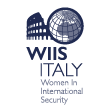The MWMN is actively engaged in the promotion and advancement of women’s meaningful and effective participation in peace processes.
Advocacy
As part of its advocacy role, the MWMN participates in international calls and campaigns and also conducts specific targeted activities.
Letter to Stephanie Williams, Acting Special Representative of the Secretary-General and Head of Mission of the United Nations Support Mission in Libya (UNSMIL)
On April 20 2020, the MWMN Secretariat sent a letter to Stephanie Williams, Acting Special Representative of the Secretary-General and Head of Mission of the United Nations Support Mission in Libya (UNSMIL), in order to share with her the Network’s concerns about the situation of the Libyan women due to the consequences of the protracted conflict.
Having burnt for almost nine years, the country has almost entirely collapsed in front of an international community that is acting as if the whole conflict has ceased to exist. The impact of war on civilians is incalculable and is affecting people in all parts of the country on a scale never seen before. With an increasing use of explosive weapons, casualties are rising and almost 900.000 people need humanitarian assistance. According to the UN, in 2019 ongoing conflicts in populated areas has directly affected an estimated 1.62 million Libyans, with more than 345.000 people that had fled their home and become displaced, including 150.000 in and around Tripoli since Haftar’s offensive began in April 2020.
As in all the civil wars, women in Libya – together with children and youth – are among the civilians that bear the brunt of the conflict. More than half the nearly 900.000 people in need of humanitarian assistance are women and children. Based on inter-sector needs analysis, an estimated 278,000 women are in need of humanitarian assistance, including 150,000 women facing protection issues such as gender-based violence. Some 170,000 women face challenges to access sufficient health services, and 36,000 girls need support to access quality education.[1]
Recent assessment conducted in Tripoli indicates the general lack of safe places, privacy, insecurity and harassment as the major safety concerns for women and girls. As the ongoing conflict escalates, women and girls continue to face not only restrictive movements in Tripoli but are also exposed to kidnapping, sexual exploitation and abuse. In addition, women migrants and refugees in Libya are at risk of rape and other forms of sexual and gender-based violence, sexual exploitation and forced prostitution in detention and at large – as stressed the former SG Ghassam Salamé.
Sexual violence against women is often used as a systematic tool of war and it generally takes place against a backdrop of structural gender-based discrimination. In fact, Libyan women continue to face discrimination in law and practice, particularly on matters related to marriage, divorce and inheritance, as well as travel restrictions and intimidation, which affect their choice of dress, behaviour and participation in public life. Patriarchal norms, amplified by the presence of armed groups and the widespread availability of weapons in every household, are the central cause of gender-based violence and lack of security for women. As said by the UN in February 2020, the country has the largest uncontrolled ammunition stockpile, with an estimated 150,000 to 200,000 tonnes of uncontrolled munitions across the country.
The forced disappearance of Sihan Sergewa, a lawmaker of the Libyan House of representatives, who was taken by force from her home in Benghazi on July 2019, witnesses that women human rights defenders are the target of increasing threats and intimidations. In addition, women’s exclusion from the political sphere has become normalized within all parties due to an increase intensity of regional conflicts, the proliferation of arms militias, inclusion of tribal feuds into the conflict, and the competition to gain political power and control over resources. [2]
Nonetheless, Libyan women have continued to support peace and security all across the country, especially at the community level. From Derna to Tripoli, to Benghazi, to Sebha, and to Ubari, women are negotiating conflicts within families, clans and local communities.[3] Albeit their outstanding contribution to the human security of the entire population, their role is not yet recognized neither at the national nor and the international level.
Libyan women are still excluded from peace talks, formal and informal consultations and meetings. Acknowledging that in the last years UNSMIL has been trying to support the establishment of women’s networks, much more needs to be done. As the organization Together We Built it has correctly pointed out, in excluding women from reconciliation and peace building efforts, the international community and Libyan politicians are “missing the full picture”.
The MWMN hopes that Stephanie Williams will continue to be a strong point of reference for Libyan women, supporting their effective and meaningful participation in all aspects of peace and security in line with UNSCR 1325 and its subsequent resolutions, and continue to engage effectively with all civil society actors in the East, the West and the South of Libya.
For the peace process to be truly by and for the Libyans and to successfully advance a long-term solution, women must have a role at the negotiating table.
[1] https://reliefweb.int/sites/reliefweb.int/files/resources/2019_LBY_HRP-FINAL.pdf
[2] https://www.wilpf.org/wp-content/uploads/2019/06/WILPF_Libya_Policy_Brief_Web.pdf
[3] Palwasha L. Kakar, To Help End a War, Call Libya’s Women Negotiators, https://www.usip.org/publications/2019/10/help-end-war-call-libyas-women-negotiators
Newsletter
The MWMN has a dedicated Newsletter that is periodically disseminated among its members, other Regional Women Mediator Networks and the wider public. It contributes to sharing the activities of the network and to providing an overview of the current debates and activities in the international fora on mediation and gender.
Join the MWMN Newsletter here!



